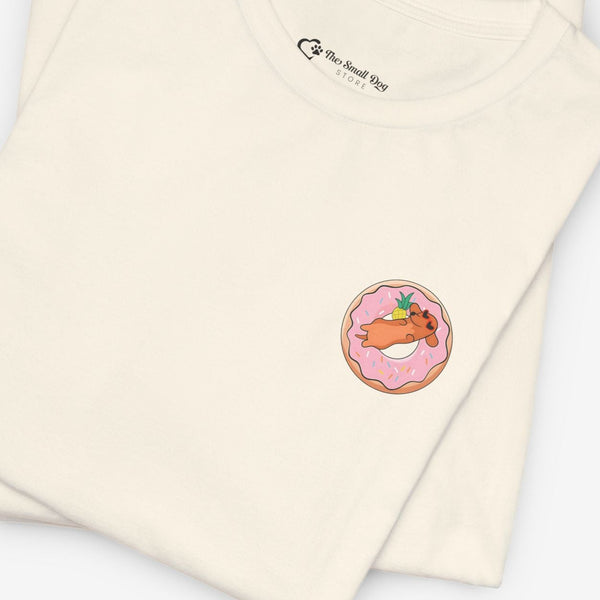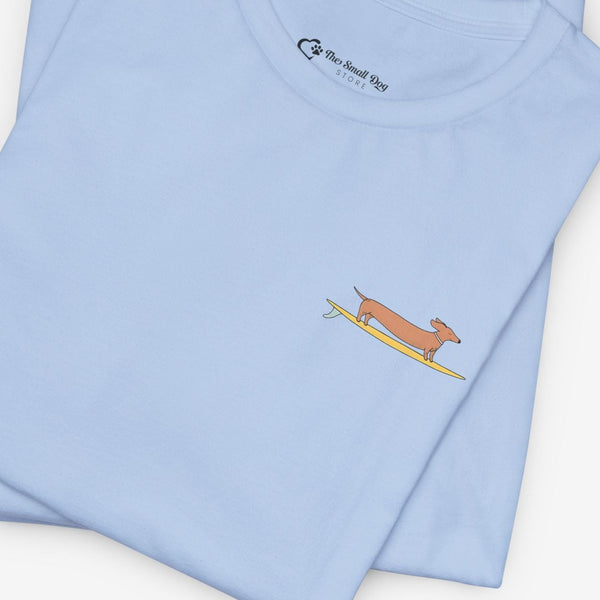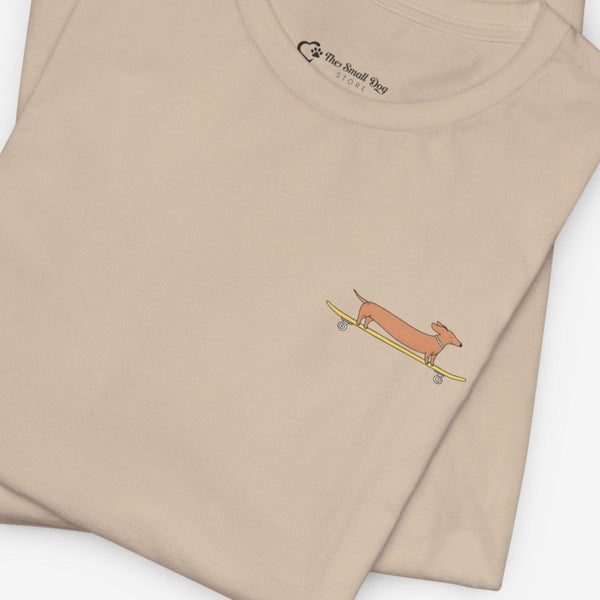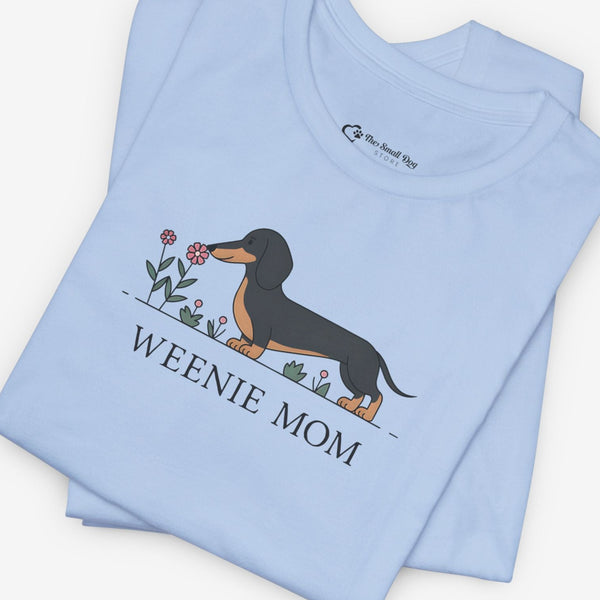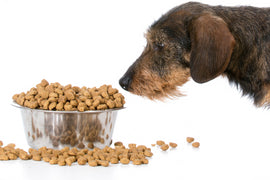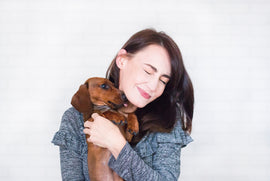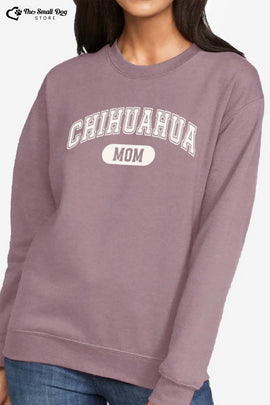The Ultimate Guide to Feeding Your Senior Dachshund
Posted by ROBERTO BURALLI
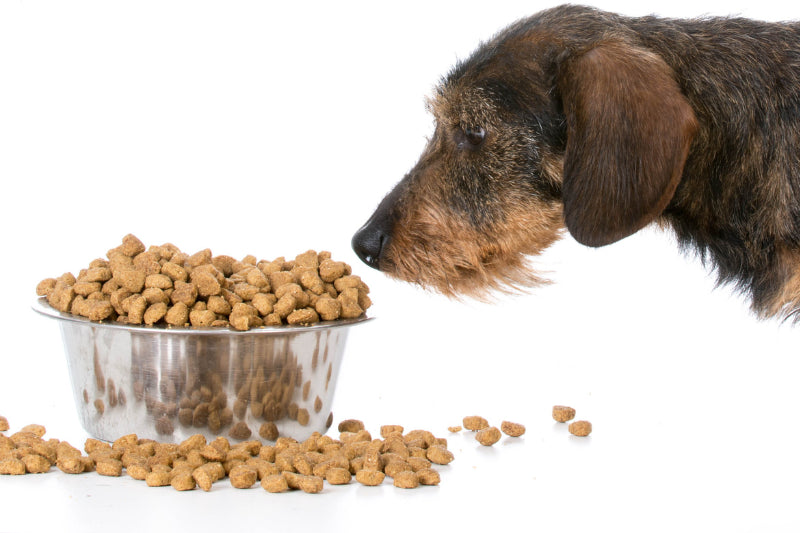
As our beloved Dachshunds age, their nutritional needs change. Ensuring they receive proper nutrition is crucial for maintaining their health, managing age-related issues, and keeping that playful spark alive. In this comprehensive guide, we'll explore everything you need to know about feeding your senior Dachshund.
To gain a comprehensive understanding of dachshund care, explore our Dachshund Care Guide: Keeping Your Wiener Dog Happy and Healthy.
What to Feed a Senior Dachshund?
Feeding a senior Dachshund requires careful consideration of their unique nutritional needs, health concerns, and lifestyle. Here are some key points to keep in mind:
Nutritional Needs
High-Quality Protein: Protein is crucial for maintaining muscle mass and overall health. Opt for high-quality animal-based proteins such as chicken, turkey, beef, lamb, or fish.
Moderate Fats with Omega-3s: While senior Dachshunds need to limit their fat intake to prevent obesity, essential fatty acids like Omega-3s are beneficial. These can help reduce inflammation, support joint health, and maintain a healthy coat and skin.
Calcium and Phosphorus: These minerals are important for bone health, which is crucial for Dachshunds prone to back issues.
Vitamins and Minerals: Ensure the diet includes necessary vitamins and minerals to support overall health and prevent deficiencies.
Dietary Considerations
Joint Health: Given their predisposition to spinal issues, consider joint supplements containing glucosamine and chondroitin.
Low Carbohydrates: Dachshunds should have a diet relatively low in carbohydrates to prevent weight gain and related health issues.
Grain-Free Options: While some Dachshunds may benefit from grain-free diets due to allergies, be cautious as some studies suggest a potential link between grain-free diets and heart disease.
Recommended Dog Food Brands for Senior Dachshunds
When choosing the best dog food for your senior Dachshund, it's crucial to select options that cater to their specific nutritional needs. Here are some top recommendations that focus on high-quality protein, omega-3 fatty acids, and joint-supporting nutrients:
Spot & Tango:
- Offers fresh, all-natural dog food tailored for senior Dachshunds
- Meals are complete, balanced, and meet AAFCO nutritional standards
- Ingredients include locally sourced beef, turkey, lamb, eggs, and various fruits and vegetables
- Free from artificial additives
- View more
Blue Buffalo Life Protection Formula Small Breed Senior:
- Specifically designed for small senior breeds like Dachshunds
- Features deboned chicken and chicken meal as primary ingredients
- Includes brown rice, oatmeal, and a variety of fruits and vegetables
- Contains glucosamine and chondroitin sulfate for joint health support
- View more
Royal Canin Dachshund Senior Dry Dog Food:
- Crafted specifically for older Dachshunds
- High protein and fat content to maintain muscle mass
- Incorporates chondroitin and glucosamine for joint care
- Formulated to meet the unique needs of senior Dachshunds
- View more
Hill's Science Diet Senior Small and Miniature Breed Crunch:
- Provides balanced nutrition for small senior breeds
- Focuses on maintaining muscle mass and supporting joint health
- Designed to cater to the specific needs of small senior dogs
- View more
These dog food options are formulated to support the overall health and well-being of senior Dachshunds, addressing common concerns such as joint health, weight management, and maintaining vitality. As always, consult with your veterinarian to ensure the chosen diet aligns with your Dachshund's specific health needs and conditions.

Feeding Practices
Portion Control: Overfeeding can lead to obesity, which exacerbates back problems. A typical portion might be 1/4 to 1/3 cup of dry food twice a day, but this can vary based on the dog's size and activity level.
Regular Feeding Schedule: Feeding twice a day can help regulate metabolism and digestion.
Special Considerations
Allergies and Sensitivities: Be mindful of any food allergies or sensitivities. Hypoallergenic diets may be necessary for some Dachshunds.
Raw Diets: While some advocate for raw diets, it's essential to ensure they are well-balanced and meet all nutritional needs.
Consult with a veterinarian or a canine nutritionist if considering this option.
How Often Should I Feed My Senior Dachshund?
For a senior Dachshund, the recommended feeding schedule is typically two meals per day, one in the morning and one in the evening. This routine helps maintain a consistent metabolism and energy levels while supporting better digestion.
As Dachshunds age, their metabolism slows, and they may require fewer calories, so it's important to monitor their weight and adjust portion sizes accordingly to prevent obesity. Always ensure that your senior Dachshund has access to fresh water, especially if their diet consists mainly of dry food.
Are Joint Supplements Necessary for Older Dachshunds?
Joint supplements can be beneficial for older Dachshunds, particularly because they are prone to joint issues such as arthritis. These supplements are not a cure but can help manage symptoms and slow the progression of joint diseases. Here's why they might be necessary:
Arthritis Management: Many Dachshunds experience arthritis as they age. Joint supplements containing glucosamine, chondroitin, and omega-3 fatty acids can help alleviate symptoms like pain and stiffness by supporting joint health and reducing inflammation.
Preventive Measures: Starting joint supplements early, even before signs of joint pain appear, can be beneficial. This proactive approach is recommended for Dachshunds due to their susceptibility to joint problems, particularly in their backs.
Long-term Use: Joint supplements are generally safe for long-term use and can be integrated into a comprehensive health management plan that includes diet, exercise, and weight management.

How Do I Transition My Dachshund to a Senior Diet?
Transitioning your Dachshund to a senior diet should be done gradually to avoid gastrointestinal issues and ensure their nutritional needs are met. Here's a step-by-step guide:
Consult Your Veterinarian: Before making any dietary changes, consult with your vet to determine the best senior diet for your Dachshund based on their health, weight, and activity level.
Choose the Right Senior Food: Look for senior dog food that is lower in calories and fat but higher in protein and fiber. It should also contain beneficial supplements like omega-3 fatty acids and glucosamine for joint health.
Gradual Transition: Introduce the new food slowly over 7-10 days to prevent stomach upset. Start by mixing 10-25% of the new senior food with their current food and gradually increasing the proportion of the new food each day.
- Days 1-2: 10% new food, 90% old food
- Days 3-4: 30% new food, 70% old food
- Days 5-6: 50% new food, 50% old food
- Days 7-8: 70% new food, 30% old food
- Days 9-10: 90% new food, 10% old food
- Day 11 onwards: 100% new food
Monitor Your Dog: Watch for any signs of digestive upset, such as vomiting or diarrhea, and adjust the transition pace if necessary. If any adverse reactions occur, consult your vet.
Adjust Portion Sizes: As senior dogs often have lower energy requirements, adjust portion sizes to prevent weight gain. Follow the feeding guidelines on the dog food packaging and consult your vet for personalized advice.

Conclusion
Caring for a senior Dachshund involves more than just love and cuddles – it requires attention to their changing nutritional needs. By providing a balanced diet tailored to their age, considering joint supplements, and carefully transitioning to senior-specific foods, you can help your furry friend enjoy their golden years to the fullest.
Remember, every Dachshund is unique, and what works for one may not work for another. Always consult with your veterinarian to create a personalized nutrition plan that addresses your senior Dachshund's specific health needs and lifestyle. With the right care and nutrition, your loyal companion can continue to bring joy and laughter to your life for years to come.
SHARE:




